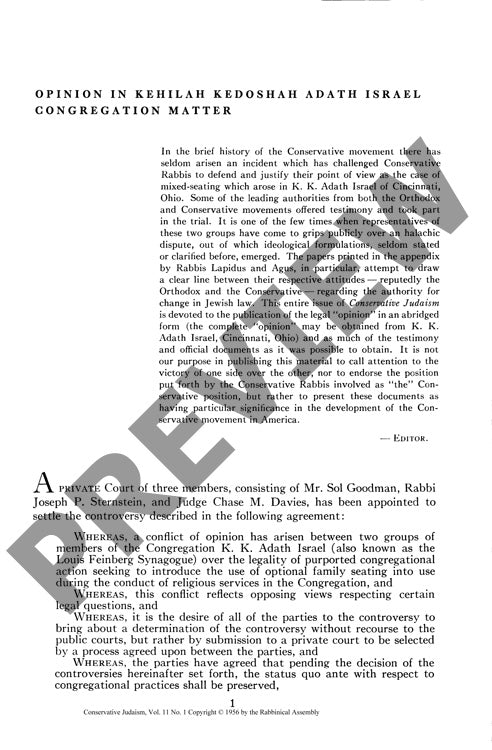Opinion in Kehilah Kedoshah Adath Israel
Couldn't load pickup availability
A landmark 1950s legal dispute over mixed-gender seating exposed deep ideological fractures within American Judaism, as Kehilah Kedoshah Adath Israel Congregation grappled with modernizing traditions while maintaining Orthodox identity. The controversy centered on whether optional family seating during services violated the synagogue's constitutional mandate to worship "in accordance with the forms and traditions of Orthodox Israelites." Through a private three-member arbitration court, leading Orthodox and Conservative rabbinical authorities presented extensive testimony, creating a rare public confrontation between the movements. Rabbi Jacob Agus argued that Liberal Orthodox interpretation permits optional family seating as part of Judaism's historical evolution, while Rabbi Benjamin Lapidus countered that gender-segregated seating represents an inviolable Orthodox requirement rooted in Talmudic tradition. The proceedings revealed fundamental disagreements about religious authority and change, with Conservative representatives emphasizing Judaism's capacity for socio-historical adaptation while Orthodox authorities insisted on strict adherence to established practice. Beyond its immediate context, the case established crucial precedent for navigating tensions between traditional observance and contemporary needs, providing a jurisprudential framework that continues to influence institutional religious disputes in American Judaism.

More Information
-
Physical Description
-
Publication Information
Published 1956
ISBN
-
Publication Credits

